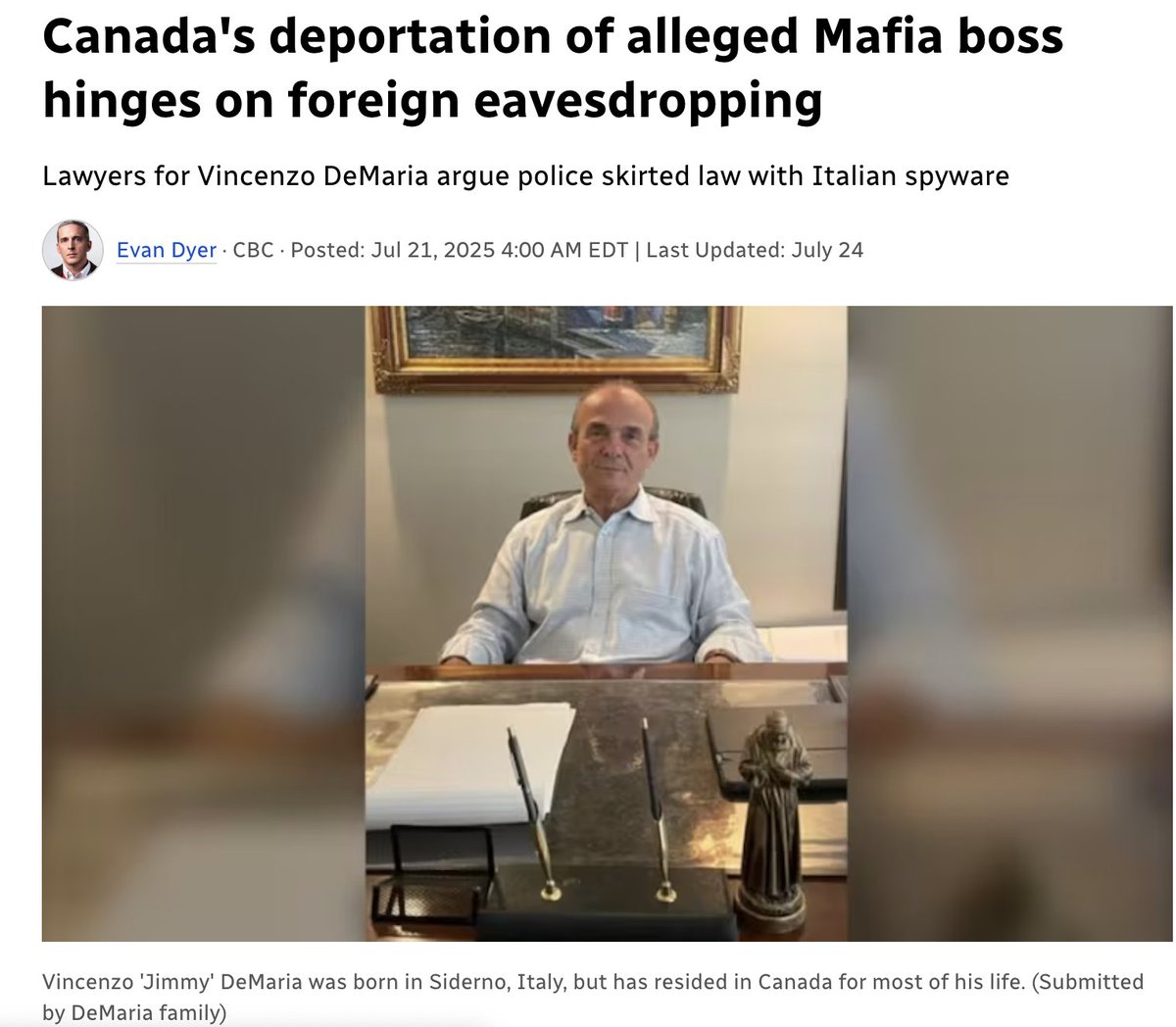Canada is trying to deport Jimmy DeMaria, allegedly a senior figure in the "Siderno Group,” which authorities say is a Toronto-based branch of Italy’s ’Ndrangheta mafia. As @CBC reports, the case hinges on foreign wiretaps — raising questions about foreign interference and constitutional rights in Canada. cbc.ca/news/politics/…

@CBC cites two OCCRP reports about the Siderno Group, including our 2024 deep dive, in collaboratiion with the @TorontoStar, into how Italy’s ’Ndrangheta mafia allegedly used personal ties inside two major Canadian banks: occrp.org/en/investigati…
One of the alleged leaders of the Toronto faction of the ’Ndrangheta was Italian immigrant Angelo Figliomeni, who appears to have had close relationships with employees at the Royal Bank of Canada and TD.
“You’re never busy for your banker. You know that, eh? Your accountant, your banker — even more important than the priest,” a financial planner at TD told Figliomeni’s senior associate.
“You’re never busy for your banker. You know that, eh? Your accountant, your banker — even more important than the priest,” a financial planner at TD told Figliomeni’s senior associate.
Prosecutors eventually dropped the case against Figliomeni, after the defense argued that police had listened in on calls between suspects and their lawyers. Money laundering charges against an RBC banker were dropped, while TD employees were never charged. Both banks said they cooperated with police on the investigation.
@CBC @TorontoStar DeMaria’s lawyer insisted he was not a mafia figure, but merely a property manager. Italian police, however, described him as one of the most senior leaders of the ’Ndrangheta in Canada and a member of the group's Camera di Controllo — a secretive leadership structure.
In 1981, DeMaria shot an Italian immigrant in Toronto's Little Italy and received an eight-year prison sentence. Because of that, he was never able to obtain Canadian citizenship. He was arrested again in 2009 and 2013 for associating with organized crime figures, a violation of parole conditions.
In 2018, DeMaria was visited in prison by his cousin, Vincenzo Muià, who had travelled from Italy to Canada on a mission to find out who murdered his brother. But Muià had brought along a phone that Italian police had infected with “Trojan” bugging software, as OCCRP has reported occrp.org/en/investigati…
The software turned Muià’s phone into a microphone, picking up conversations that police listened in on. Some of those conversations are being used as evidence in the case to deport DeMaria — which raises constitutional questions.
“At stake is the question of whether a foreign government should be able to arrange warrantless surveillance of a person on Canadian soil, and then use evidence obtained in a Canadian legal proceeding,” CBC noted.
“At stake is the question of whether a foreign government should be able to arrange warrantless surveillance of a person on Canadian soil, and then use evidence obtained in a Canadian legal proceeding,” CBC noted.
• • •
Missing some Tweet in this thread? You can try to
force a refresh









